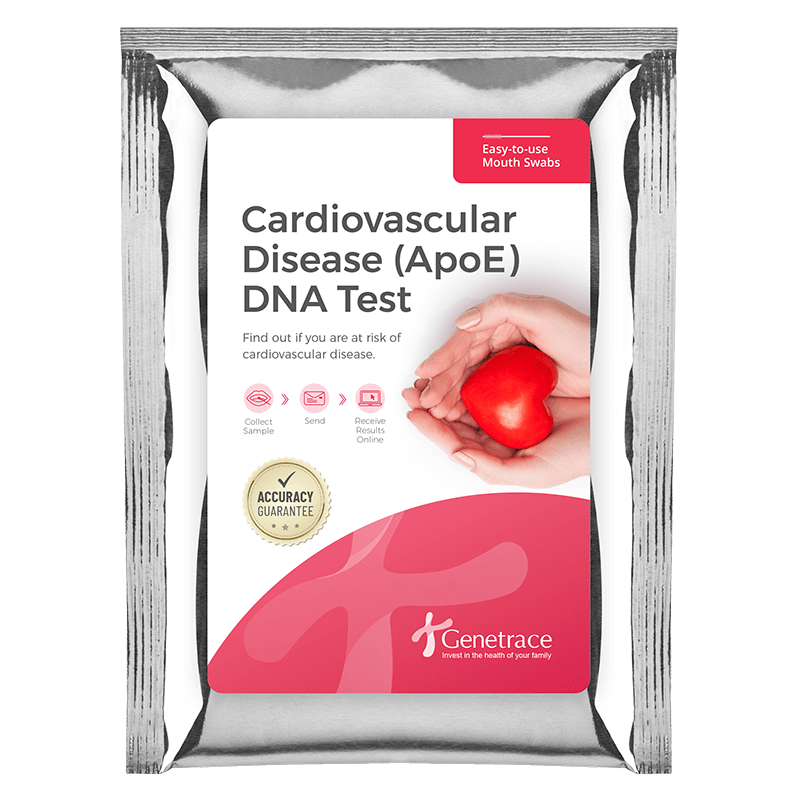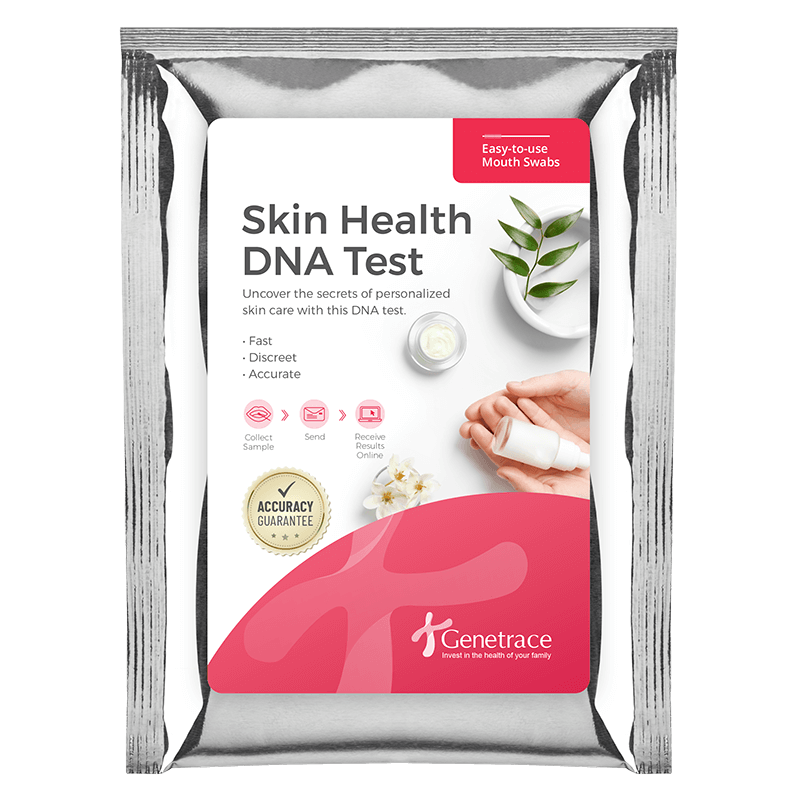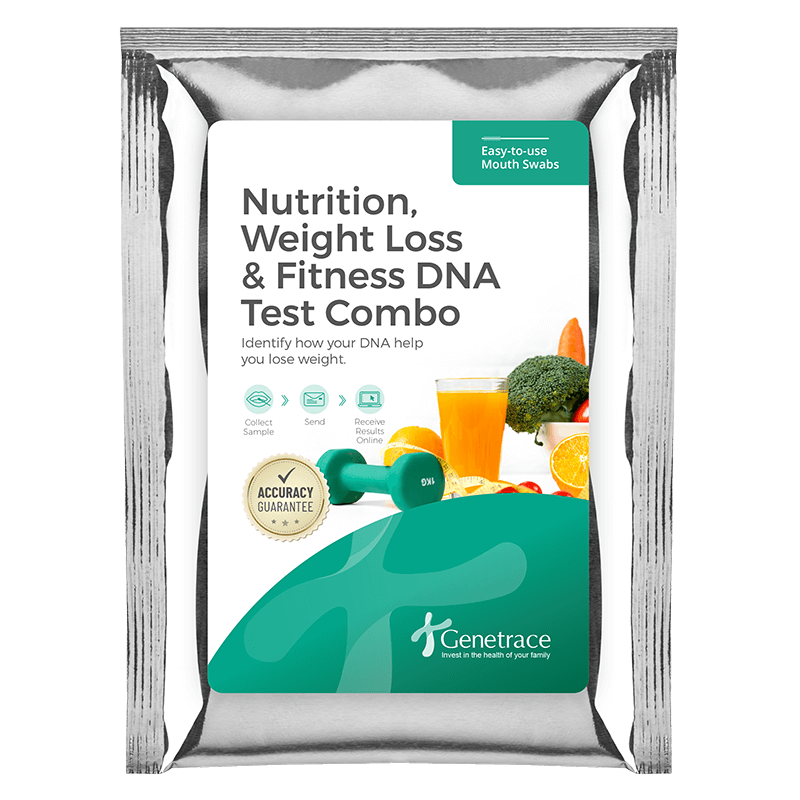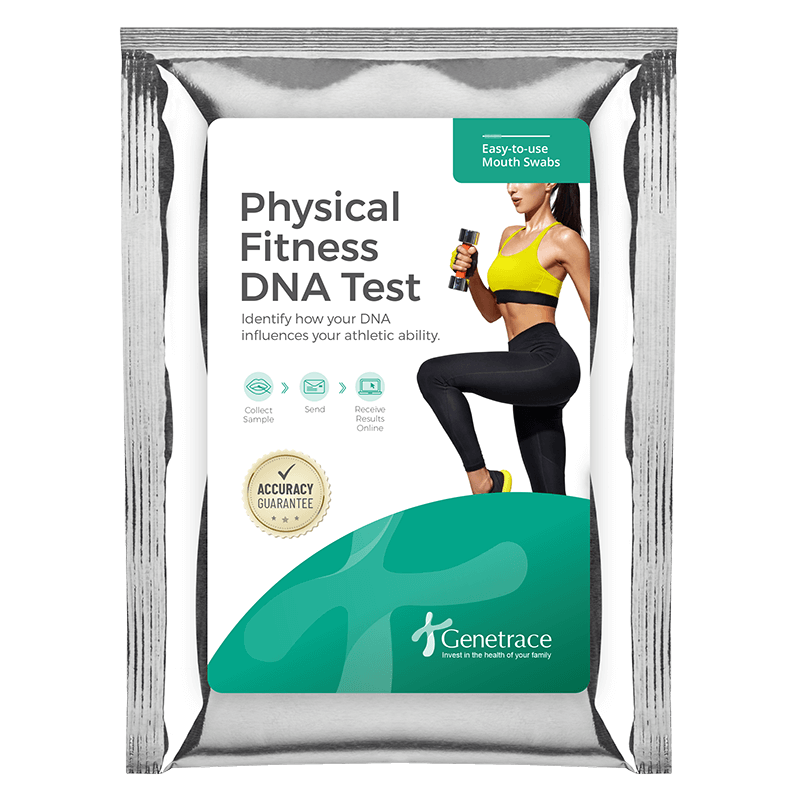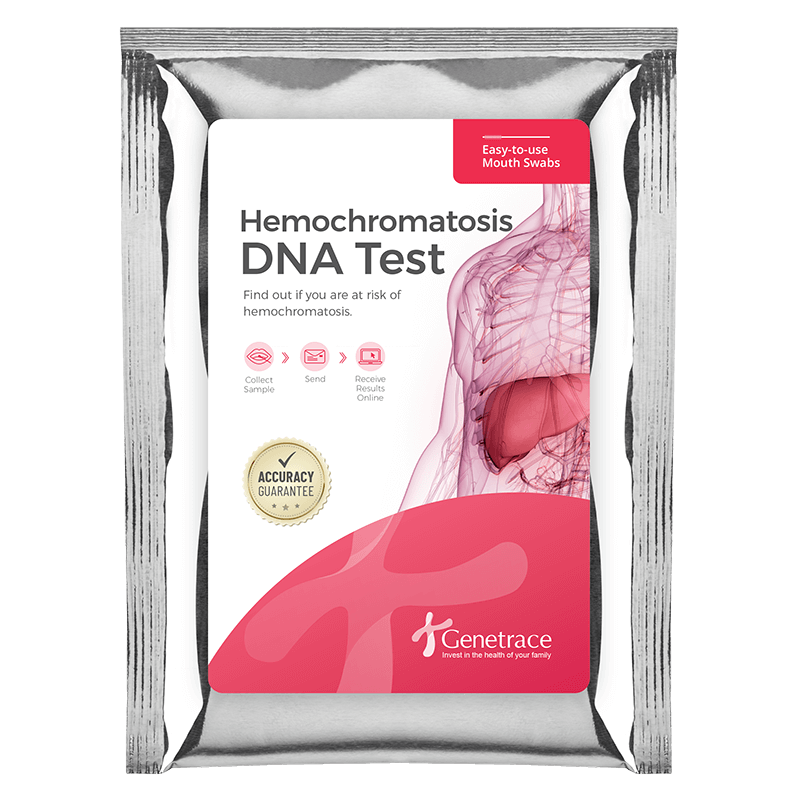Cardiovascular Disease (ApoE) DNA Test
$195.00
The APOE gene influences both your risk of a heart attack, and your best approach to lower cholesterol levels. Find out your risk and the best treatment option for you.
- Free shipping both ways
- Easy-to-use cheek swabs
- AABB, ISO17025 & CLIA accredited lab
Kit includes all lab fees and free return shipping to the lab.
Receive secure, confidential results through your online dashboard.
All tests performed in our AABB, ISO 17025 & CLIA accredited laboratory.
Cardiovascular disease (CVD) is responsible for approximately 1 in 5 deaths in the US. CVD is an umbrella term that captures heart attacks, strokes, chest pain and angina, all of which are caused by the narrowing or blockage of blood vessels. Many factors such as diet, activity level, age, weight, and genetics can contribute to an individual’s risk of CVD. The APOE gene is the best genetic predictor for whether an individual will respond to statins or changes in their diet to lower cholesterol levels.
The main function of ApoE (the protein product of the APOE gene) is to help clear cholesterol and triglycerides from the bloodstream by moving them into cells. There are at least three slightly different versions or alleles of this gene, each producing a slightly different version of the ApoE protein. An individual’s susceptibility to health conditions like CVD depends on the combination of specific genetic variants they have inherited.
What is tested?
This test detects variants of the APOE gene linked to an increased risk of cardiovascular disease (CVD). We each inherit two copies of the APOE gene, one from each parent. Studies linked the following variant combinations to increased risk of CVD.
- Two copies of the e3 allele: Not at increased risk CVD
- One e3 allele and one e2 allele: Not at increased risk of CVD
- Two copies of the e2 allele: Lower LDL-cholesterol, but increased risk of hyperlipoproteinemia type III, which can contribute towards CVD
- One or two copies of the e4 allele: Elevated LDL-cholesterol and increased risk of CVD
Studies have also linked APOE variants to an individual’s ability to lower cholesterol levels through diet and statins (cholesterol-lowering medications).
APOE e3/e4 or e4/e4:
Individuals with these variant combinations should consume a low-fat diet as they are unable to metabolise fats effectively. These individuals also do not respond to statins.
APOE e2/e2 or e2/e3:
Individuals with these APOE combination are less effective at metabolizing carbohydrates. They are able to metabolize fats and respond better to statins.
Summary
Cardiovascular disease (CVD) is responsible for approximately 1 in 5 deaths in the US. CVD is an umbrella term that captures heart attacks, strokes, chest pain and angina, all of which are caused by the narrowing or blockage of blood vessels. Many factors such as diet, activity level, age, weight, and genetics can contribute to an individual’s risk of CVD. The APOE gene is the best genetic predictor for whether an individual will respond to statins or changes in their diet to lower cholesterol levels.
The main function of ApoE (the protein product of the APOE gene) is to help clear cholesterol and triglycerides from the bloodstream by moving them into cells. There are at least three slightly different versions or alleles of this gene, each producing a slightly different version of the ApoE protein. An individual’s susceptibility to health conditions like CVD depends on the combination of specific genetic variants they have inherited.
What's Measured?
What is tested?
This test detects variants of the APOE gene linked to an increased risk of cardiovascular disease (CVD). We each inherit two copies of the APOE gene, one from each parent. Studies linked the following variant combinations to increased risk of CVD.
- Two copies of the e3 allele: Not at increased risk CVD
- One e3 allele and one e2 allele: Not at increased risk of CVD
- Two copies of the e2 allele: Lower LDL-cholesterol, but increased risk of hyperlipoproteinemia type III, which can contribute towards CVD
- One or two copies of the e4 allele: Elevated LDL-cholesterol and increased risk of CVD
Technical Information
Studies have also linked APOE variants to an individual’s ability to lower cholesterol levels through diet and statins (cholesterol-lowering medications).
APOE e3/e4 or e4/e4:
Individuals with these variant combinations should consume a low-fat diet as they are unable to metabolise fats effectively. These individuals also do not respond to statins.
APOE e2/e2 or e2/e3:
Individuals with these APOE combination are less effective at metabolizing carbohydrates. They are able to metabolize fats and respond better to statins.
Explore your DNA Story
Embark on a journey of self-discovery with our at-home DNA tests, powered by cutting-edge science made accessible for all.
Simple Sample Collection
Secure Online Results
Accredited Laboratory
Discreet & Confidential
How it works
Purchase your kit
Collect DNA Sample
Mail samples to the lab
Receive your results
FAQ's
Here are the answers to the most frequently asked questions about this test.

